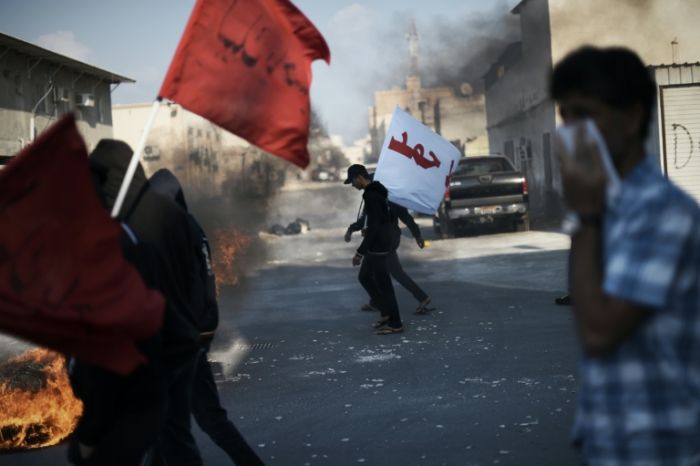No country has suffered from Qatari violations as much as Bahrain. No country suffered pain and was dealt blows time after time from a sister and neighbor as much as Bahrain.
It all started with the historic dispute over the Hawar islands that International Criminal Court ruled to be Bahraini. Years after the verdict, Qatar dreamed of controlling the islands that are geographically closer to Bahrain than the emirate. The islands are historically, as proven by British documents, Bahraini.
Qatar’s complex with Bahrain however did not end with the International Criminal Court, but we can say that it started there.
Then Prime Minister of Qatar Sheikh Hamad bin Jassem launched a diplomatic attack against the neighbor, Bahrain, accusing it of meddling in Qatari internal affairs.
Doha continued in its ill-intentions towards Bahrain, in secret and sometimes in the open, until the decisive moment arrived in the kingdom with a dark incident in its history in February 2011. At the time, the country’s Shi’ite opposition became divided between a moderate one that had grown confused and an armed one that demanded the establishment of a Khomeini-like Islamic republic and the ouster of the monarchy.
Perhaps the impact of the shock was great on Bahrain, Saudi Arabia and the rest of the Gulf after Qatar stood from day-one with the chaos. Doha attempted to portray its stance as neutrality and its former Premier Sheikh Hamad bin Jassem was making initiatives between Bahrain and Qatar. These were initiatives that Manama did not ask for and never accepted to be begin with.
He did not know that Bahrain was aware of his secret contacts with the armed opposition. In fact, Doha was communicating with the armed opposition with complete ease, without caring about the possibility that its talks were being heard by Manama because it believed that the overthrow of the regime was only a matter of time.
Sheikh Hamad continued his attempts to implement a roadmap, form a “national salvation government” and organize new elections that would serve the extremist opposition. It goes without saying that King Hamad bin Issa Al Khalifa rejected this initiative and thank God he did, otherwise Iran would have swallowed Bahrain with its militias.
It is completely untrue what Doha said that Bahrain allowed Qatar to carry out a mediation or propose an initiative at the time. Bahrain completely rejected them and considered Qatar’s behavior meddling in its internal affairs.
I should point out here to two important developments. The first was when a major Saudi official angrily told Hamad bin Jassem “to know his place” while meeting him in Manama. The second was Hamad bin Jassem’s audacity to head to the former “Pearl” roundabout, the site of the protests, which was met with the ire of several senior Bahraini officials.
The new recordings that Bahrain revealed over the contacts carried out by the Qatari emir’s advisor and a hardline Bahraini opposition member have turned the spotlight again on Doha’s long history of conspiracies.
Even though I am convinced that many more details will be revealed in the future, what has been uncovered so far is enough to indicate that the threads of the conspiracy are larger and more complicated than can be resolved by avoiding the issue or baseless justifications as Doha is doing so right now.
Qatar’s quest to take control of the region cannot take place without targeting Saudi stability and sparking a revolt there, revealed the so-called Gadhafi recordings. Doha sought to harm Saudi Arabia, but Bahrain was able to end its crisis with the least damage possible through the help of its real brothers in the Saudi leadership.
Doha saw the historic opportunity wasted and Bahrain did not become part of the infamous Doha-backed Arab Spring.
After the armed Bahraini opposition announced its mission to change the regime and establish an Islamic republic, protesters stormed Manama’s financial center. I remember those moments very well. It was 8:00 am and I was watching al-Jazeera English channel as it was broadcasting the developments live. I still remember the reporter as she rejoiced that Bahrain’s monarchy was toppled and that the revolt was a success. “We are witnessing a new regime in Bahrain,” she said.
What took place on al-Jazeera summed up the truth of the Qatari plot that was really supporting the overthrow of the regime of its sister Bahrain. This explains Doha’s refusal later to take part in the Jazeera shield force that entered Bahrain. It is also the only country from among Saudi Arabia, the United Arab Emirates and Kuwait to fail to pay its dues in regards to the Gulf Cooperation Council’s approval of the Marshall plan to back Bahrain and Oman.
What other shocks can we expect from Qatar?
